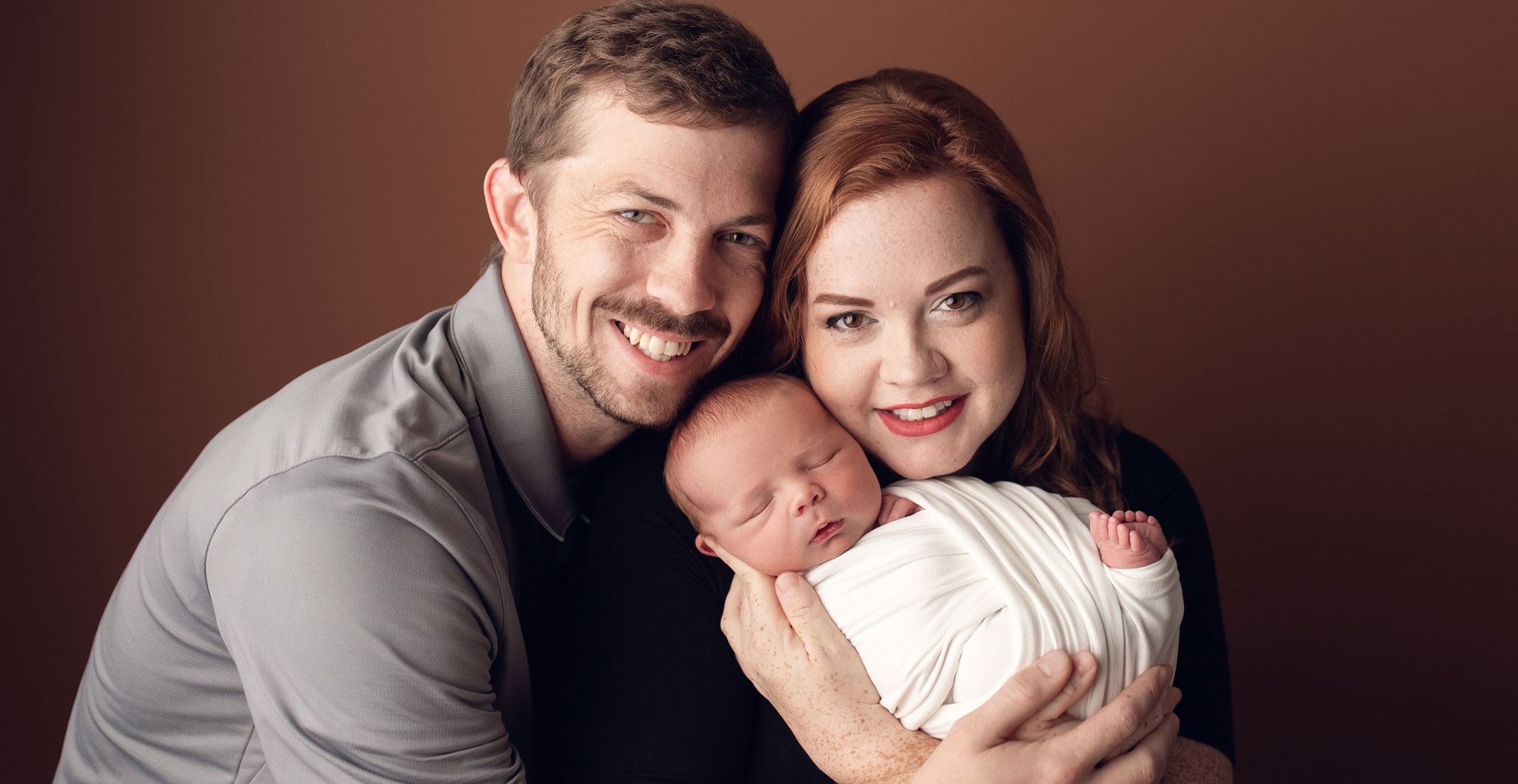St. Cloud Hospital Delivers with Pasteurized Donor Human Milk
Birthing Services“For mothers who want to exclusively breastfeed, pasteurized donor human milk allows moms to work on milk supply while still offering an opportunity to bond with baby.”
What started out as an easy pregnancy for Christina Clifton ended with a bang, after she endured a 40-hour labor that stretched out over the Fourth of July weekend.
Eventually, after an unplanned cesarean section on July 5, her son Dax was born weighing 10 pounds, 2 ounces and 20.5 inches long at CentraCare – St. Cloud Hospital.
Christina and her partner, Jeremy, had made the decision early on in the pregnancy to breastfeed because it was a healthy, natural and holistic option. So, after Dax’s birth, they quickly began the process. At first, they seemed to have success.
“However, sometime that night we hit a brick wall,” said Christina. “Dax would no longer latch on and wanted nothing to do with the breast. He would just scream, and it became frustrating for both of us.”
By morning, Christina made the call to start a discussion about supplementation with her nurse.
“I was looking at my 10-pound little boy, thinking he just wants a meal, and I can’t give that to him,” said Christina. “I felt defeated having to make that choice, thinking I would have to move to formula.”
However, Christina’s nurse offered a different solution. The Birth Center at CentraCare – St. Cloud Hospital had recently begun use of pasteurized donor human milk (PDHM) for mothers who intend to feed breast milk exclusively but might need to supplement for medical reasons. PDHM is donated human (breast milk) that comes from a milk bank. The milk bank tests and specially processes the milk so it can safely be given to babies when a mother’s own breast milk is unavailable or in low supply.
Jeremy and Christina had never considered PDHM. Their first thoughts were how donor milk would be fed to Dax and if it was safe. They learned the milk is given through a supplemental nursing system (SNS). With SNS, a tube brings the supplemental milk from a container to the baby’s mouth while baby is latched on to the mother’s breast. Doing so allows the baby to associate milk with breasts, maintain latching skills and get breast milk at the same time as the supplemental milk.
“Jeremy and I took a minute to discuss, wondering if it all seemed weird, with breast milk being an intimate thing,” said Christina. “But we learned that milk banks have strict guidelines for donor moms.”
According to Birth Center Pediatric Hospitalist Andrea Gravely, APRN, CNP, IBCLC, the milk bank pasteurization process makes risk of any infection immeasurably small while the benefits of receiving human milk are incredibly large.
“For mothers who want to exclusively breastfeed,” said Andrea, “PDHM allows moms to work on milk supply while still offering an opportunity to bond with baby.”
Once the decision was made to move forward, Christina’s nurse brought in the warmed donor milk and the SNS system. At that point, the nurse provided education, Christina and Dax learned the system and Jeremy cleaned the delicate equipment after feedings were complete.
With this team effort, which Christina called the “craziest thing while in the hospital,” Dax latched on right away.
“Dax went right to town and it was kind of funny,” said Christina. “He was ferociously sucking, and you could hear him swallowing and drinking. And it was like, wow, slow down, you know? Dax finished an ounce in what seemed like two seconds. And, then he pulled away from the breast and smiled. We knew then that we made the right choice.”
The family headed home a day later and planned to use the SNS system until Christina’s milk came in. “When the milk came in on Friday night, I just breathed a sigh of relief,” said Christina. “It was just like, oh my gosh, I think we're on the other side of this thing.” The family used the system a couple more times but by the next day they were feeding Dax solely by breast.
“I can definitely see why people end up not breastfeeding because it is a mind game,” said Christina. “Especially as a new mom who's sleep deprived and wondering if you're doing the right thing for your baby. It's hard and it takes perseverance.”
Now that Christina and Jeremy have worked out breastfeeding, they have come to realize how easy and convenient it can be. For a family that camps and travels, they like that when they leave the house, they don’t have to worry about packing bottles, formula or cleaning supplies.
Christina plans to tell friends to trust their instincts as a mother and to persist with breastfeeding — it's a learning curve for mom and baby. She says the nurses at the Birth Center are some of the most caring and knowledgeable people she ever met. And she attributes their success to the staffs’ patience, advocacy for patients and teaching skills.
Photo credit: Tiny Hearts Studio
